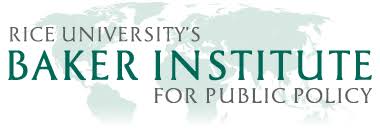The U.S.-China Phase 1 Trade Agreement should be reinterpreted for the long term so both countries can benefit from a multibillion-dollar energy component of the deal — a reinterpretation that can lead to job creation in the U.S. energy sector — say experts at Rice University’s Baker Institute for Public Policy, Ken Medlock and Steven Miles, fellows at the Center for Energy Studies at the Baker Institute.
 The agreement, signed in January, requires China to purchase $50 billion worth of energy products from the U.S. in the next two years. Even before the coronavirus affected global markets, there were “serious questions about whether the energy component of the agreement is already doomed to failure,” wrote Medlock and Miles in a new issue brief. They argue that the agreement should be reinterpreted, allowing the Chinese to satisfy terms of the deal by committing to long-term purchases from new or expanded U.S. energy terminals.
The agreement, signed in January, requires China to purchase $50 billion worth of energy products from the U.S. in the next two years. Even before the coronavirus affected global markets, there were “serious questions about whether the energy component of the agreement is already doomed to failure,” wrote Medlock and Miles in a new issue brief. They argue that the agreement should be reinterpreted, allowing the Chinese to satisfy terms of the deal by committing to long-term purchases from new or expanded U.S. energy terminals.
The brief explains that development and construction of large-scale energy commodity export facilities typically takes years, meaning virtually all purchases of liquefied natural gas (LNG) by China would come from facilities that have already been built.
These repurchases would most likely be swaps of previously sold cargoes or spot sales, probably yielding little if any increase in net energy exports from the U.S. and providing no revenue to U.S. exporters, the authors argue.
As a result, the agreement as it stands could cause little or no net investment or job creation for the U.S. energy industry, Medlock and Miles argue. They propose a new interpretation of the agreement that looks toward the long term.
“A commitment to a long-term purchase of energy from a new U.S. export facility would also allow China to get past any near-term economic impacts of the coronavirus while also generating benefits for the U.S. in terms of additional investment and employment,” they wrote.
These long-term purchases could “count” toward the energy purchase requirement stated in the agreement. Instead of focusing on short-term spot sales, long-term purchases of large LNG, for example, could satisfy the entirety of the $50 billion purchase requirement. That would have an almost immediate positive impact by leading to billions of dollars of investment and the creation of thousands of jobs for workers building new energy export facilities in the U.S., Medlock and Miles argue.
“This would, in turn, serve as a good basis on which the two countries could build future agreements expanding their relationship on economic and energy matters,” they wrote.
Medlock is the James A. Baker, III, and Susan G. Baker Fellow in Energy and Resource Economics at the Baker Institute and the senior director of the Center for Energy Studies. He is also the director of the Masters of Energy Economics program, holds adjunct professor appointments in the Department of Economics and the Department of Civil and Environmental Engineering, and is the chair of the faculty advisory board at the Energy and Natural Resources Initiative at Rice.
Miles is a nonresident fellow at the Center for Energy Studies. He also serves as senior counsel at Baker Botts LLP, where he headed the LNG team for much of his 35 years as a lawyer. In addition to LNG, his practice focused on natural gas, electric power and renewable energy. While a partner at Baker Botts, Miles chaired the firm’s Energy Sector Committee.


